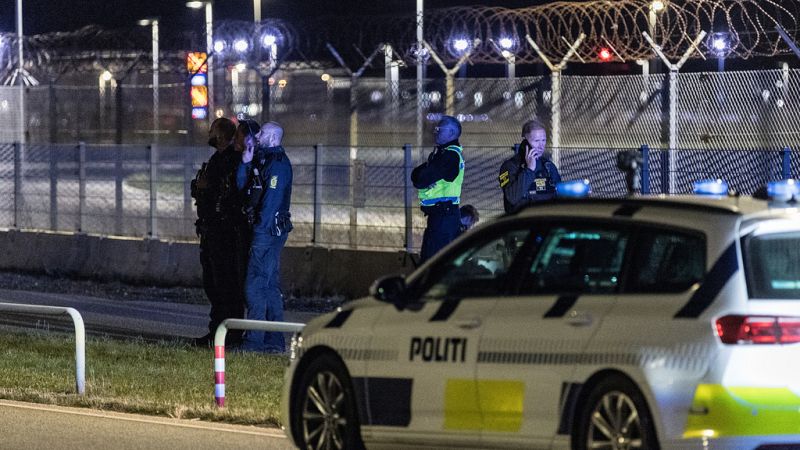Denmark alerts NATO and EU after coordinated drone attacks at its airports

Denmark has reached out to NATO and the EU after it was forced to close Aalborg airport and placed three other airports on alert on Thursday as unauthorised drones conducted what authorities described as coordinated attacks.
Copenhagen was considering whether to trigger the alliance's Article 4, in what was a hybrid attack involving a "systematic approach" carried out by professionals in flying drones near critical infrastructure, Danish Deputy Prime Minister and Defence Minister Troels Lund Poulsen said at a press conference on Thursday.
Authorisation was given to shoot down the drones in case of future incidents, authorities said.
"We are going to find the people who are behind this," Lund Poulsen said.
"We have various military capabilities that can help defend Denmark, F-35 and our frigates," he added.
However, Lund Poulsen further stated that Denmark is lacking in tools needed to address the threat that is "here to stay" and it does not have a ground-based air defence system, which the government decided to purchase this month.
It would still not be fully effective in fighting the type of drone that appeared above Denmark on Thursday, he added.
"There is no single capacity that will make this go away."
"We need to have a wide range of tools to combat what comes our way, whether it's missiles or drones," said Lund Poulsen.
Aalborg, Esbjerg, Sonderborg and Skrydstrup airports were all affected overnight on Thursday.
The Aalborg airport, located in northern Denmark and one of the country’s largest, was closed, the Danish police announced. The drones disrupting its operations left the area after about three hours, according to reports.
The North Jutland Police released a statement saying they were closely monitoring the situation at Aalborg, but could not indicate the number of drones involved.
The unauthorised drone incursion over Denmark follows similar incidents at Copenhagen and Oslo airports that officials suspect may involve Russian interference.
Copenhagen and Oslo airports also targeted
On Monday evening, the Copenhagen airport was affected by a similar incident, which raised security concerns about possible Russian involvement.
Authorities said the drones at Aalborg followed a similar pattern to the ones that had halted flights at Copenhagen.
The drone attack affected the Danish armed forces and was categorised as "the most serious attack yet on Denmark's infrastructure" by the Danish Prime Minister Mette Frederiksen.
Authorities in Norway also shut the airspace at Oslo airport for three hours on Monday evening due to possible danger from unauthorised drone activity.
"The drones that halted flights at Copenhagen airport were part of a pattern of persistent contestation at our borders," European Commission President Ursula von der Leyen said on Tuesday.
Although Norwegian and Danish authorities are working together on the Copenhagen and Oslo incidents, their investigation has not yet established a connection, Norway's Foreign Minister said on Wednesday.
Commercial drones are generally not capable of taking off and flying near airports, as these areas are designated as "no-fly zones" in their GPS software.
Europe is on high alert
Europe has been on high alert after several NATO members reported airspace violations by Russia.
Last week, Estonia and Poland triggered Article 4 to request consultations with other NATO allies regarding such incursions in separate incidents.
Romania, another NATO member, also reported a breach by Russian drones in its airspace.
Russia denied violating Estonia's airspace, while it insisted the Polish incursion was not deliberate. However, it did not comment on the Romania incident.
After meeting on Tuesday, NATO issued a statement condemning Russia's actions and warned that it would use "all necessary military and non-military tools" to defend itself.
"Russia bears full responsibility for these actions, which are escalatory, risk miscalculation, and endanger lives. They must stop," the statement said.
"We are a defensive alliance, yes, but we are not naive, so we see what is happening," NATO's Secretary General Mark Rutte noted.
After his speech to the UN, Donald Trump suggested that NATO member states should shoot down Russian planes breaching their airspace.
Kremlin spokesperson Dmitry Peskov called the allegations of Russia being behind recent drone incidents above European airports "unfounded".
Today

